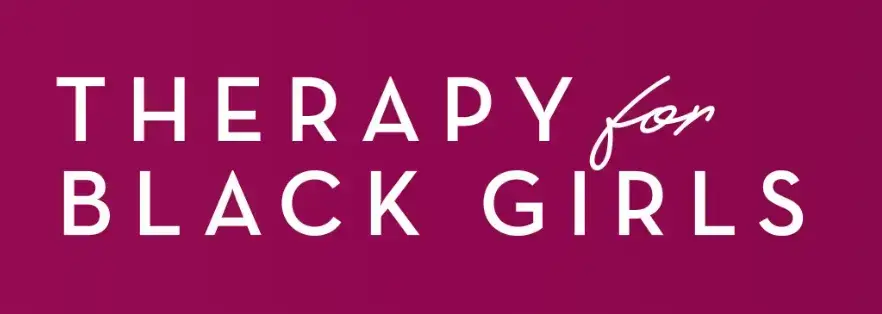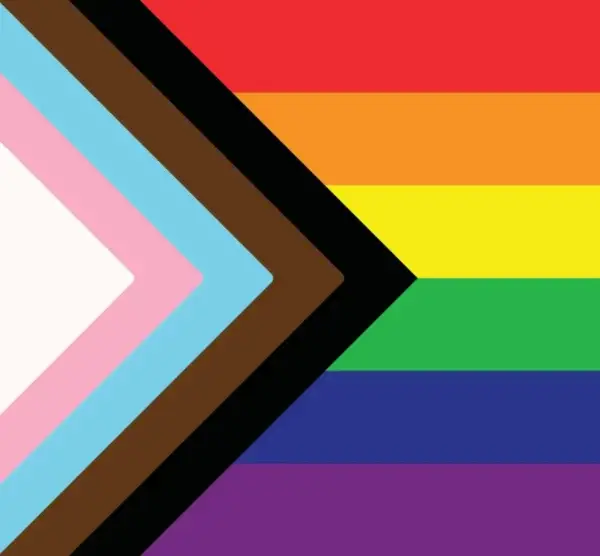Navigating the 4th of July Alcohol Free

Ah, 4th of July– a day filled with the smell of burgers on the grill, the sound of pool water splashing from cannonball competitions and wave pools–and of course, an abundance of booze.
What was once an inviting and exciting gathering for many, may now present a host of issues for sobriety, health and balanced-living. But, there’s got to be something in between staying home to stay sober or going on a bender, right? Right?…
There is. Let’s talk about how to navigate 4th of July alcohol-free (or just health-conscious, whatever you’re into)
Is it me or does everyone seem
really, really drunk on 4th of july?
Actually, yes, 4th of July is one of the most intoxicated days of the year. There are some obvious reasons that this may be, and some not-so-obvious. It’s important to know why we may be more vulnerable to binge-drinking on holidays, and, more specifically on the 4th of July.
1. School's Out, Parents are STRESSED
4th of July usually falls around 2-3 weeks post-last day of school in New Jersey. Parents are likely at their peak threshold of stress and are still acclimating to the day-to-day routine of their kids being home.
3. Sense of Belonging
Though explanatory, the social pressures and “fitting in” don’t end in high school. Being comfortable in social settings isn’t easy, so joining in a shared activity, say, beer pong, can ease the social anxiety and make us feel more relaxed.
5. Family, Friends & Everyone In Between
Cook-outs and BBQ’s tend to be a more communal event, unlike holidays such as Christmas, where typically family and close loved ones are together. This may increase the social pressures of interacting with new people, being more outgoing, and making first impressions.
2. It's an all-day event
Unlike other holidays, like NYE, 4th of July starts early in the afternoon for BBQ-ing and festivities and continues well into the night for fireworks. This gives a lot of opportunity for people to drink heavily from day to night.
4. It's hot as hell outside
Guess what doesn’t mix well with dehydration?
Booze.
People become drunker faster when they are sweating more, but the effects of alcohol may not feel as intense as quickly.
6. Independence Day Holds Different Meanings
We can’t ignore or undermine the existence and impact of racial disparities and injustices just because it’s a holiday. Celebrations around more *political* holidays can warrant increased stress, anxiety and even cognitive dissonance for many.
Sober, Sober-Ish, Sober Curious?
If you’re looking to get sober, stay sober, or just keep a healthy balance this summer, the next few tips can be helpful in acheiving your goals.
Disclaimer: If you are struggling with substance misuse and feel the want, or need, to get support, reach out for help from a licensed therapist.
CLICK HERE TO JUMP AHEAD to the Sobriety Support Section for resources, links, and more.
Option 1: Totally Alcohol Free
Sticking to an alcohol-free holiday can be a major challenge with so much readily available booze around. Here are our go-to strategies for a sober holiday:
- Sober Buddy-System: Bring a friend to talk to and maybe even stay accountable too is a powerful tool when facing the pressure of alcohol
- Come with your favorite, non-alcoholic drink. This helps reduce the drink offers and inquiries.
- Get involved with backyard games to foster a sense of belonging.
- Always know when you’re ready to go home, and respect your limits. Maybe during your drinking days you were the last-man-standing but embrace your new boundaries and know when it’s time to wrap up.
- Have an exit plan for the times when maybe you stay past your comfort level and just.want.to.get.out. Having a good excuse is great. But you can also give the ‘ole Irish goodbye if it means staying sober.
- Give yourself a break– you’re doing the best you can. Take these experiences as learning opportunities.
Progress, not perfection.
Option 2: Healthy Moderation
So… according to the U.S. Department of Health and Human Services, moderate drinking is up to one drink for women per day and up to two drinks per day for men.
And no, the tally doesn’t carry over, so you can’t ‘save’ your daily drinks for two weeks to go on a bender for a day and call it moderation. SMART recovery uses a ‘harm reduction’ approach to substance use, including alcohol. For many, substance use is an all-or-nothing bet. But for some, moderate drinking is a real possibility.
- Practice saying “no”. As silly as that may sound, giving into peer pressure is even sillier.
- Know your triggers for binge drinking & avoid them (people, places and things)
- Know your limits well before you begin drinking. Once you start drinking, your judgment is impaired. Women usually lose their “off switch” after ~2-4 drinks, while men usually lose their “off switch” after ~3-5 drinks.
- Use a alcohol monitoring app (yes, we’ve graduated from tally-marks on our forearms to a sophisticated means of moderation)
- Alternate alcoholic and non-alcoholic drinks (and pick good, yummy non-alcoholic drinks)
- Practice a healthy lifestyle everyday so that the temptation to ditch the healthy lifestyle may seem more consequential and detrimental to your hard work
- List the reasons you want to drink moderately on your phone as a reminder and motivator to stick to the plan.
- Avoid drinking with heavy drinkers.
- Find friends or accountability partners who also drink in moderation.
- Eat before drinking or while drinking.
Sobriety Support
Navigating the 4th of july alcohol-free is possible
If you are looking for support or guidance, and want to speak to a therapist today, send us a text, email or give us a call. We’re here to help!
Where are you located? I need a therapist near me
We are fully online, which means that your therapy sessions will be help via video call on our HIPAA compliant Platform. Anyone in New Jersey can access our therapy services
How do I get started as a new client?
New Clients can reach out to us directly via call, text or email here:
Does my insurance cover my visits?
We provide”Courtesy Billing” for clients who are using the Out-of-network insurance benefits.
Our Insurance Page shares a small blurb about Why We Left Insurance Panels
What are out-of-network benefits?
When using OON benefits, patients typically pay the full cost of the treatment upfront and then file a claim with their insurance company for reimbursement. The amount of reimbursement can vary depending on the plan, but it can sometimes be as high as 90%. Call your insurance to see if you have OON benefits or click here to call us and we can check for you!
Is Online Therapy As Effective As In-Person Therapy?
Online therapy is essentially face-to-face counseling, just conducted remotely. Studies show that tele-therapy is as effective as traditional counseling. Professional organizations and state governments recognize its benefits and have set regulations for it. However, like any therapy, its success in achieving your goals isn’t guaranteed. It’s important to discuss with your therapist whether tele-therapy is working for you.
How Should I Prepare for My First Session?
Showing up is all that you need to do! But if you really want to get the most out of session, it could help to take some time to think about what you want from therapy. It helps to write down your goals, questions you have or things that you feel are important to share.
Do you offer traditional talk therapy?
of course! though we have some unconventional therapy approaches, we are rooted in evidenced based practices. Talk therapy is a major player in the therapy room! See What we Treat and Integrative Services for more information
Is Virtual Counseling Suitable for Everyone?
Online therapy might not be as effective for individuals with chronic suicidal thoughts, severe trauma, significant mental health history, or those recently in intensive care. Such cases often benefit more from traditional, in-person counseling. We’ll help you decide if our online services are right for you during your intake and evaluation.
Can I Change Therapists If I'm Not Happy?
Yes, you can switch therapists to another provider within the practice, or we can provide you a referral if preferred. We want to ensure that your time and effort are well spent, and that you are getting the relief you need, that’s why we work collaboratively with each other in the practice, as well as outside therapists who we know and trust.
How Do I Know If Therapy Is Helping?
You should feel like you’re making progress. Signs it’s working include:
- Feeling comfortable talking to your therapist
- Your therapist respects boundaries
- You’re moving towards your goals
- You feel listened to
You’re doing better in life - Your self-esteem is getting better
What is your cancellation policy?
We ask that clients provide at least 24 hours notice in the event that they need to cancel to avoid the 50% cancellation fee. we understand that life happens and do our best to be flexible & reschedule.
What Geographic Areas Are Served?
Currently, we serve clients in New Jersey and are expanding to other states as telehealth laws evolve. While telehealth offers the convenience of attending sessions from anywhere, state laws require clients to be in-state during their session.
Is Online Therapy Easy to Use for Non-Tech-Savvy People?
Yes, it’s pretty simple to access sessions. You’ll need basic internet skills, such as opening and visiting the patient link sent to you via email. It’s similar to video chatting like Facetime or Zoom. We can also walk you through it on the phone the first time to ensure a strong connection
What Questions Should I Ask My New Therapist?
Feel free to ask anything. Some good questions are:
- How often will we meet?
- What do you specialize in?
- What experience do you have with my issue?
- What outcomes can I expect?
- How will I know I’m progressing?
- How long do you usually work with clients?
- How will we set my treatment goals?
What is the difference between associate therapists & fully licensed therapists?
Our Qualifications:
Our founder, Rebecca Sidoti, is a highly qualified, state-licensed therapist and supervisor with extensive training in anxiety related disorders and innovative treatment such as Ketamine Therapy. Mind by Design Counseling adheres to standards set by the our governing counseling boards.
To see each providers credentials, training and licenses, visit our “Meet the Therapists” Page to learn more.
- LAC/LSW are therapists who may practice clinical work under the supervision of a fully licensed therapist.
- LPC/LCSW are therapists who have completed the necessary clinical hours post-graduation under supervision and can practice clinical work independently.







